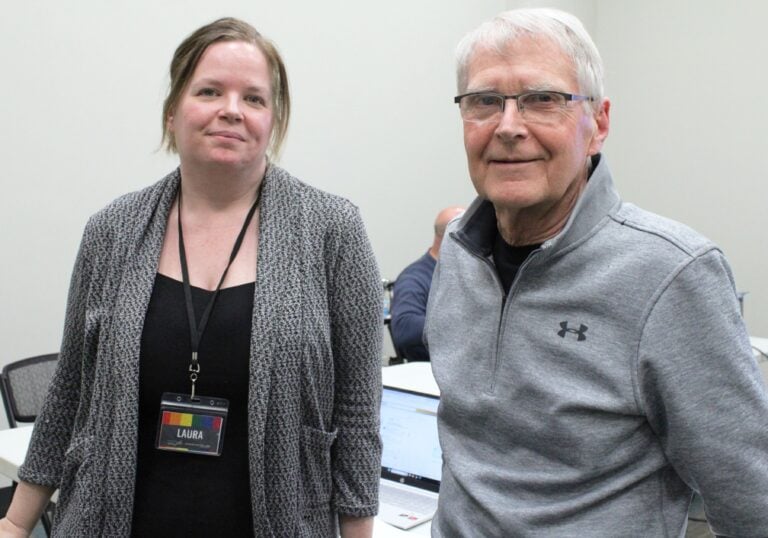This is the first of three parts.
Richard West
NOTL Writers’ Circle
When the Chief Stoker first met me, he bellowed, “What do you mean, Dids, you can’t read? I promise you, we’ll soon change that!”
He then added reading and writing lessons to my daily routines and, sure enough, I learned to read, while our destroyer sailed through the freezing northern seas. Probably the most valuable thing I could have acquired, during my stint in the Royal Navy.
I had been known as Dids, from a very young age. My real name is Arthur, but nobody ever uses it. Being blessed with a broad smile, and a laugh, which chuckles through my speech, people see me a jolly type, even when I might be worried or frightened. The Chief Stocker would often say, “Keep smiling Dids, it helps us all see the sunnier side of things.” I felt part of the crew and tried hard to do my bit.
After I completed my training in the early summer of 1943, I was posted to a new destroyer, HMS Virago. To be honest, I had misgivings about being a seaman, because I can’t swim! My job was in the engine room, assisting the stokers and engineers, tending the boilers and turbines. Essentially, I was a grease monkey.
We went through trials and shake down exercises, on HMS Virago. Then she was put to work on Arctic convoys, to Murmansk in northern Russia.
These Arctic convoys took place in the winter, when the sun hardly appears at all, for months on end. Most of us, who took part in these convoys, spent a good deal of time either nearly frozen or terrified.
It was physically arduous, due to the intense cold, terrible seas and danger of attack. Other dangers were icebergs, or capsizing from ice build up on the superstructure.
Chipping ice off the ships guns, masts and decks, was not a cheery past time. No one wants to be on deck, or worse, up on the higher parts of the ship, when the wind is howling and spray continuously soaks you.
But no one wants the ship to suddenly roll over and sink. So you chip away at the ice and try to be brave through your watch. Then you get to go below and find a steam pipe to cuddle up to.
In addition to the natural hazards, the convoys were attacked by aircraft stationed in northern Norway, as well as submarines and, sometimes, powerful surface vessels. The ever-present worry of torpedoes plays the devil with your nerves. And the scream and crash of bombs falling around the ship, can freeze your blood to ice, so you cannot move.
My only consolation was, I stayed warmer than most of the crew, most of the time. The engine room is by definition warm, being full of hot machinery.
To be continued.









